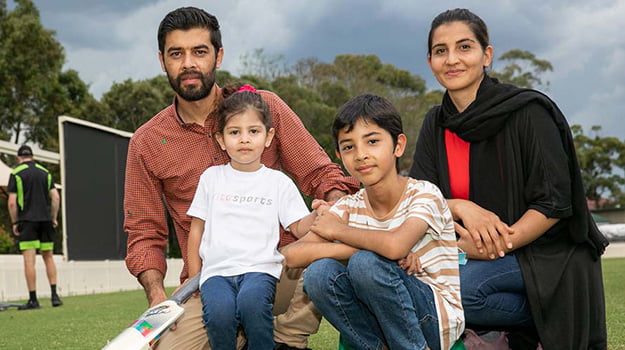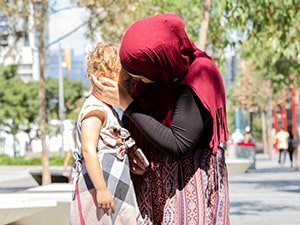04 Dec 2018
Media releasesWhy Australia must adopt the Global Compact on Migration
The GCM is a historic opportunity for global cooperation on issues surrounding international migration. On December 10 and 11, the GCM will be adopted by over 180 UN member states at an intergovernmental conference in Marrakech, Morocco.
All countries in the Asia-Pacific region will be signatories with the exception of Australia.
Jesuit Refugee Service (JRS) Australia’s Director, Carolina Gottardo, who attended most of the consultations and negotiations as a civil society representative said, “This public letter is a powerful demonstration of civil society’s disappointment and concern about the Australian government’s recent decision to withdraw from the Global Compact on Migration. We will continue to hold the Australian government to account on these kinds of decisions.”
She said, “For the Australian government to suggest that we do not need the rest of the world to manage the inherently international phenomenon of migration is puzzling. No country can address migration on its own. Adopting the Global Compact on Migration is the right thing to do if we want to fulfil our humanitarian obligations and improve our cooperation with states in the Asia Pacific region and beyond.”
Among the other signatories are the Refugee Council of Australia (RCOA), the Federation of Ethnic Community Councils of Australia (FECCA), the Australian Council of Social Service (ACOSS) and Amnesty International Australia.
Paul Power, Chief Executive Officer of the Refugee Council, said, “The Global Compact seeks to build international cooperation on migration matters, recognising the rights of people involved in migration and also the right of sovereign states to set their own policy.
“Any Australian who takes the time to read the Global Compact will be surprised by the political controversy about it, particularly when they see that preamble clearly states its non-binding nature.”
Dr Graham Thom, Refugee Coordinator at Amnesty International, said, “By refusing to sign the Global Compact on Migration, the Government is highlighting how woefully out of step it is with the rest of the world, while at the same time undermining Australia’s national interests by turning away from our region and our ability to work constructively to provide genuine solutions for people on the move.”
Please see the full text of our public letter.80.35 KB
List of signatories (in alphabetical order):
- Australian Council for International Development (ACFID)
- Act for Peace
- Amnesty International Australia
- Asylum Seekers Centre
- Asylum Seeker Resource Centre
- Australian Association of Social Workers
- Australian Churches Refugees Taskforce (ACRT)
- Australian Council of Social Service (ACOSS)
- Australian National Committee on Refugee Women (ANCORW)
- Brigidine Asylum Seeker Project
- Catholic Alliance for People Seeking Asylum (CAPSA)
- Catholic Mission
- Caritas Australia
- Common Grace
- End Child Detention Coalition (ECDC)
- Federation of Ethnic Community Councils of Australia (FECCA)
- Hazara Women of Australia
- International Detention Coalition (IDC)
- Jesuit Refugee Service (JRS) Australia
- Jesuit Social Services
- Justice for Refugees SA
- Love Makes A Way
- Pacific Focal Point GCM, Pacific Civil Society
- Refugee Advice and Casework Service (RACS)
- Refugee Council of Australia
- Refugee Nurses of Australia
- Rural Australians for Refugees (RAR) Australia (National)
- Settlement Services International (SSI)
- Social Responsibilities Committee, Anglican Church of South Queensland
- St Francis Social Services (House of Welcome)
- St Vincent De Paul Society National Council
- UNICEF Australia
- Uniting Church Assembly in Australia
- UNSW Forced Migration Research Network

































